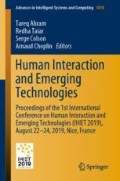Abstract
This study aims to investigate the effects of a virtual reality (VR)-based learning environment on learners with different preferred learning styles by measuring various dimensions of technology mediated approach. The learning outcomes were measured through academic performance, and affectively through “learning experience” and “perceived learning”. “Learning experience” in VR was measured through perceived realism, immersion, interaction, presence, engagement, enjoyment, ease of use, usefulness, technology functionality, task-technology fit and attitude towards using the technology. A pretest-posttest design was employed for this study. Students were categorized based on their preferred learning style and their responses were compared. Results presented here are based on data collected from 130 students (grade 5–11) in NSW, Australia. As the result of our analysis indicates, regardless of students’ preferred learning style, students similarly benefited from VR and their learning experience and learning outcome did not differ significantly.
Access this chapter
Tax calculation will be finalised at checkout
Purchases are for personal use only
References
Dholakiya, N.D., Ferjencik, M., Schofield, D., Kubík, J.: Virtual learning for safety, why not a smartphone? Process Saf. Prog. 38(2) (2019)
Bell, P.C., Taseen, A.A., Kirkpatrick, P.F.: Visual interactive simulation modeling in a decision support role. Comput. Oper. Res. 17, 447–456 (1990)
Lee, E.A.L., Wong, K.W.: Learning with desktop virtual reality: low spatial ability learners are more positively affected. Comput. Educ. 79, 49–58 (2014)
Hwang, G.J., Wu, P.H., Chen, C.C.: An online game approach for improving students’ learning performance in web-based problem-solving activities. Comput. Educ. 59(4), 1246–1256 (2012)
Dewey, J.: Democracy and Education. Macmillan Company, New York (1916)
Ketelhut, D.J., Schifter, C.C.: Teachers and game-based learning: improving understanding of how to increase efficacy of adoption. Comput. Educ. 56(2), 539 (2011)
Park, B., Plass, J.L., Brünken, R.: Cognitive and affective processes in multimedia (2014)
Mikropoulos, T.A., Natsis, A.: Educational virtual environments: a ten-year review of empirical research (1999–2009). Comput. Educ. 56(3), 769–780 (2011)
Slater, M.: Measuring presence: a response to the witmer and singer presence questionnaire. Presence: Teleoper. Virtual Environ. 8(5), 560–565 (1999)
Skarbez, R., Brooks Jr., F.P., Whitton, M.C.: A survey of presence and related concepts. ACM Comput. Surv. (CSUR) 50(6), 96 (2018)
Winn, W., Jackson, R.: Fourteen propositions about educational uses of virtual reality. Educ. Technol. 39, 5–14 (1999)
Nawaz, A., Kundi, G.M.: From objectivism to social constructivism: the impacts of information and communication technologies (ICTs) on higher education. Int. J. Sci. Technol. Educ. Res. 1(2), 30–36 (2010)
Phillips, P., Wells, J., Ice, P., Curtis, R., Kennedy, R.: A case study of the relationship between socio-epistemological teaching orientations and instructor perceptions of pedagogy in online environments. Elect. J. Integ. Technol. Educ. 6, 3–27 (2008). http://ejite.isu.edu/. 6(1). Accessed 10 Apr 2007
Cagiltay, N.E., Yildirim, S., Aksu, M.: Students’ preferences on web-based instruction: linear or non-linear. J. Edu. Technol. Soc., 9(3): 122–136 (2006). http://www.ask4research.info/. Accessed 10 Apr 2007
Kolb, D.A.: The kolb learning style inventory 4.0: guide to theory, psychometrics, research and applications (2013)
Annetta, L.A., Minogue, J., Holmes, S.Y., Cheng, M.T.: Investigating the impact of video games on high school students’ engagement and learning about genetics. Comput. Educ. 53(1), 74–85 (2009)
Author information
Authors and Affiliations
Corresponding author
Editor information
Editors and Affiliations
Rights and permissions
Copyright information
© 2020 Springer Nature Switzerland AG
About this paper
Cite this paper
Pedram, S., Howard, S., Kencevski, K., Perez, P. (2020). Investigating the Relationship Between Students’ Preferred Learning Style on Their Learning Experience in Virtual Reality (VR) Learning Environment. In: Ahram, T., Taiar, R., Colson, S., Choplin, A. (eds) Human Interaction and Emerging Technologies. IHIET 2019. Advances in Intelligent Systems and Computing, vol 1018. Springer, Cham. https://doi.org/10.1007/978-3-030-25629-6_43
Download citation
DOI: https://doi.org/10.1007/978-3-030-25629-6_43
Published:
Publisher Name: Springer, Cham
Print ISBN: 978-3-030-25628-9
Online ISBN: 978-3-030-25629-6
eBook Packages: EngineeringEngineering (R0)

